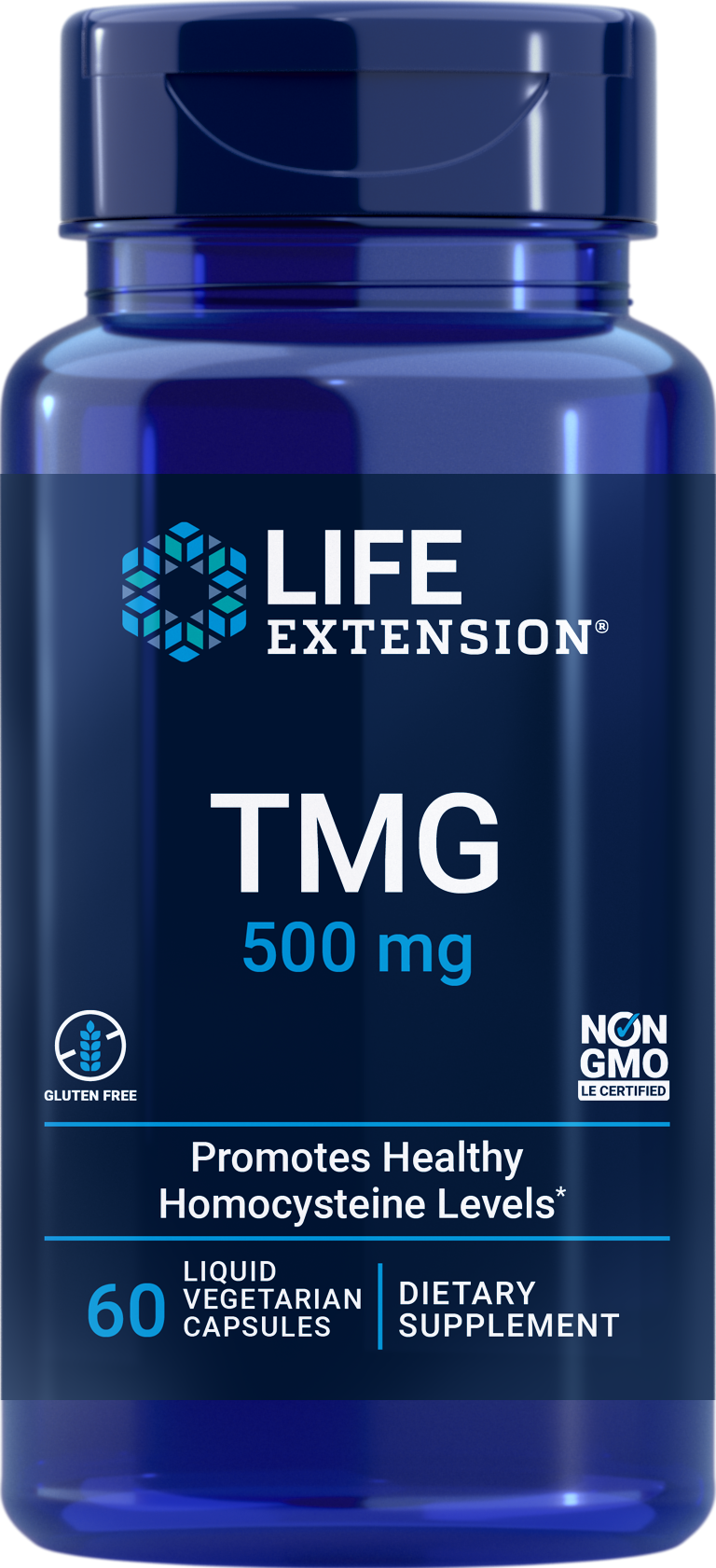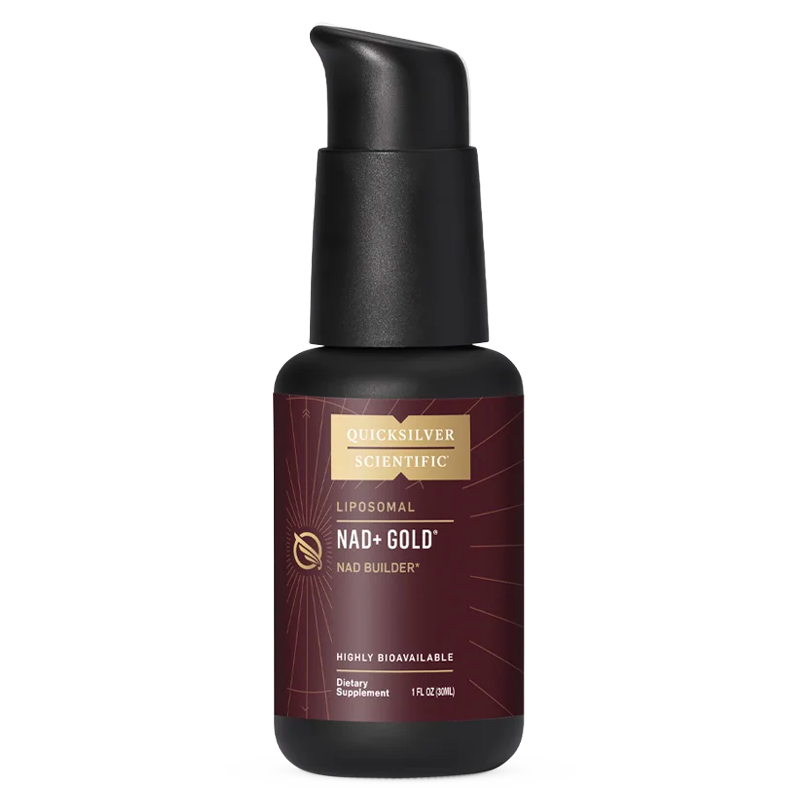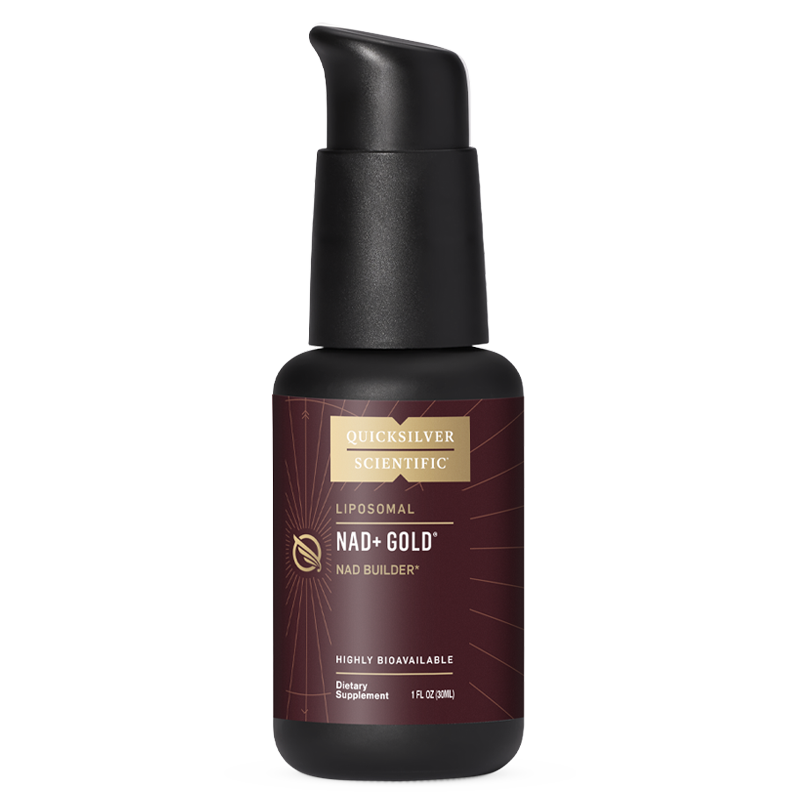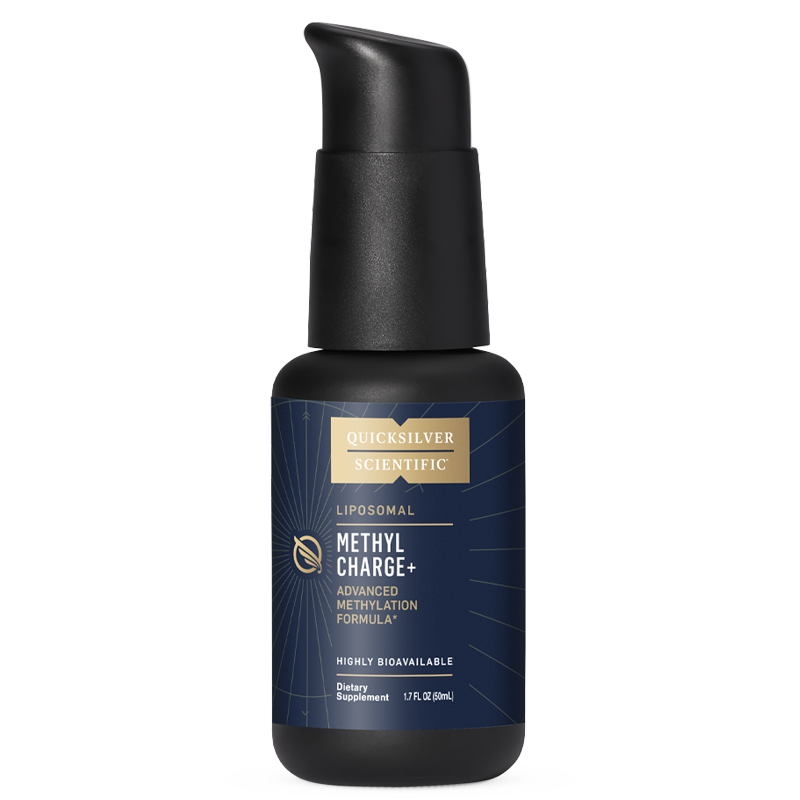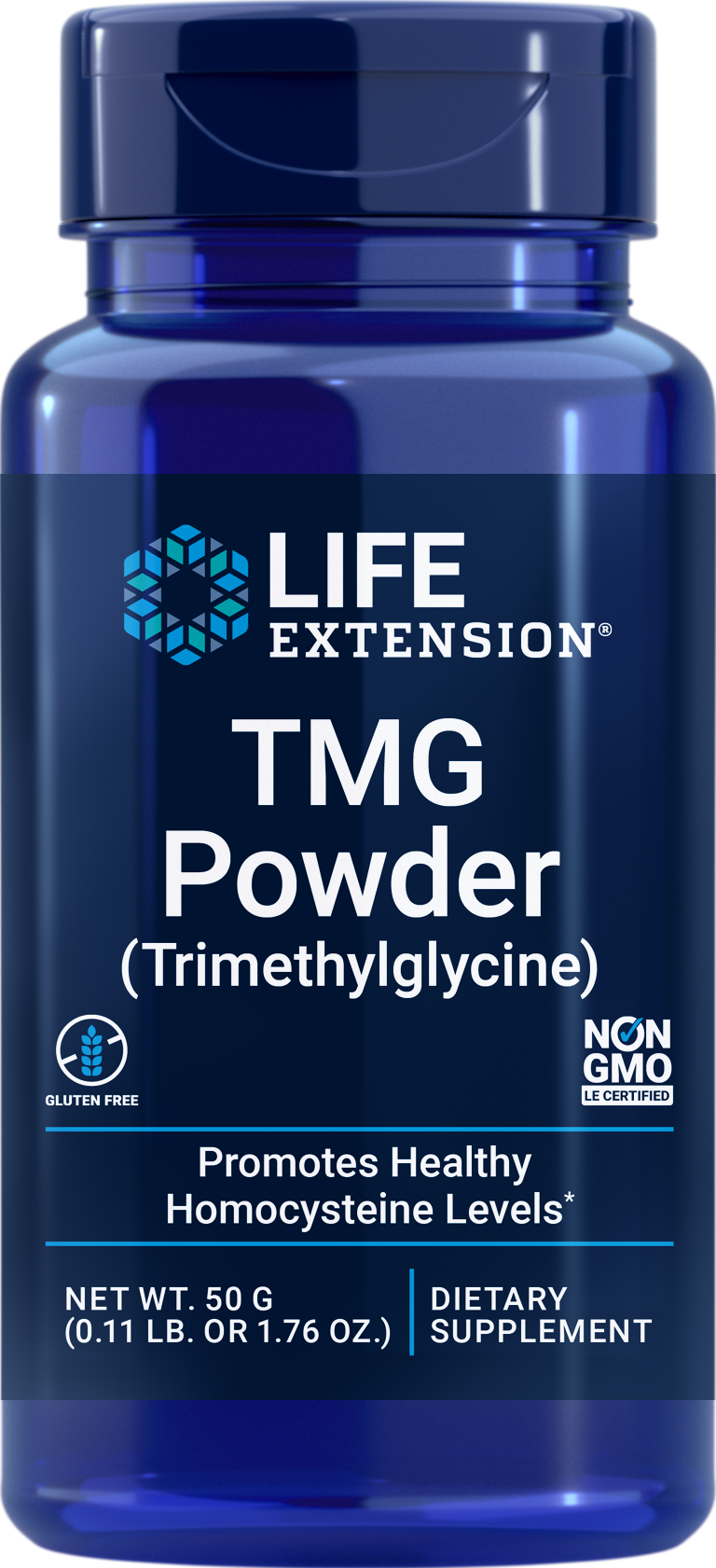
TMG
Trimethylglycine (TMG) has been known as a heart-healthy amino acid compound since the 1950s.
In further studies TMG is shown to have multiple health benefits.
What is TMG?
TMG is also called glycine betaine and is an amino acid derivative, a compound consisting of the amino acid glycine with three attached methyl groups, hence the name Trimethylglycine.
This amino acid derivative is produced in the body from choline, an essential nutrient found in eggs, soybeans and other foods. Moreover, it's found in wheat bran, with smaller amounts in other cereal grains, and it's available in supplement form.
TMG benefits
Homocysteine is an amino acid. Vitamins B12, B6 and folate break down homocysteine to create other chemicals your body needs.
High homocysteine levels in your blood may mean you have a vitamin deficiency, and without treatment, elevated homocysteine increases your risks for dementia, diabetes, lupus, heart disease, and stroke. It's recommended that you get a periodic blood test to check your homocysteine levels.
Fortunately, there are natural ways to lower homocysteine, and one of them is TMG!
- By supporting healthy homocysteine levels, it can promote healthy cardiovascular function
- TMG is found to encourage healthy liver function
- It can help protect DNA against damage and its consequences (such as cancer and premature aging)
- TMG has been associated with healthy blood pressure and mitochondrial function
- Studies also show that TMG can support a healthy inflammatory response
TMG supplements
Supplementing with TMG is used to protect against the damaging effects of a toxic amino acid called homocysteine, which has been linked to cardiovascular and Alzheimer’s disease.
The advantages of nutritional homocysteine control are great (while the dangers are virtually nonexistent)! Evidence suggests that TMG may be more efficient at regulating homocysteine levels than folate.
- The “tri” implies three methyl groups on each glycine molecule
- Can be assigned to homocysteine, remethylating it into methionine and s-adenosyl-L-methionine (SAMe)
- Remethylation of homocysteine requires co-factors folic acid, vitamin B6, vitamin B12, zinc, and TMG


